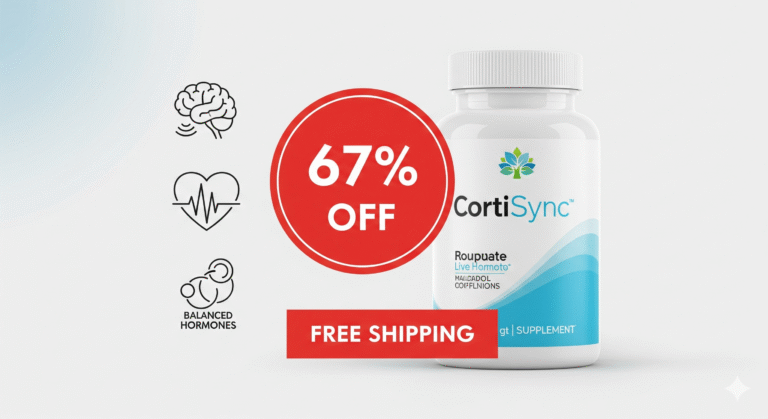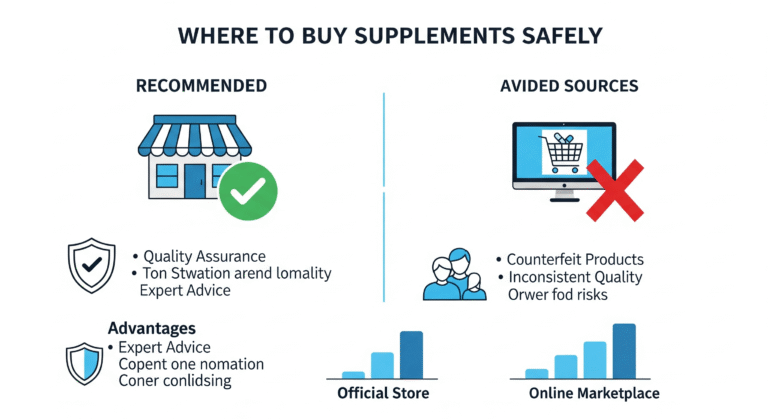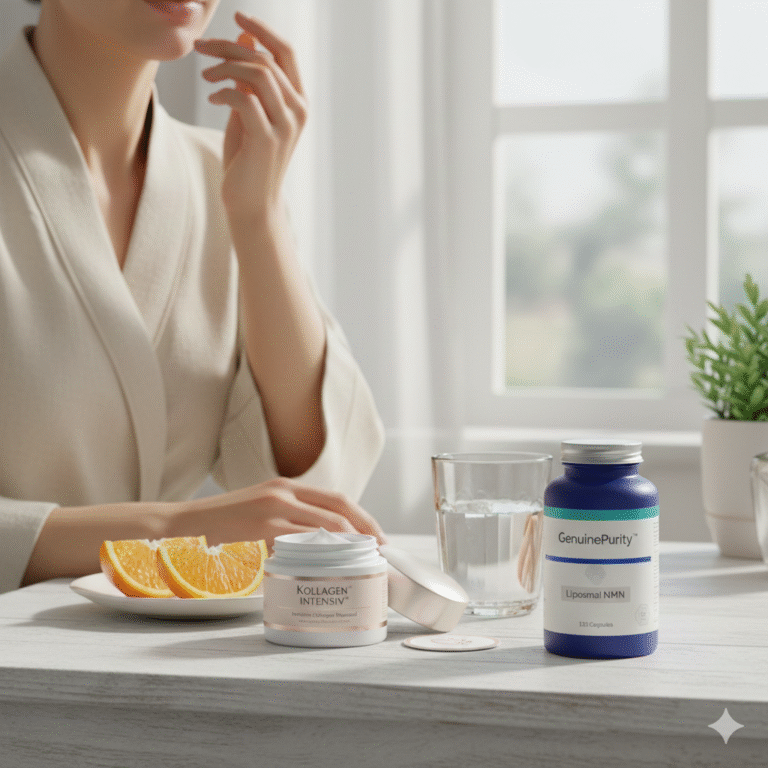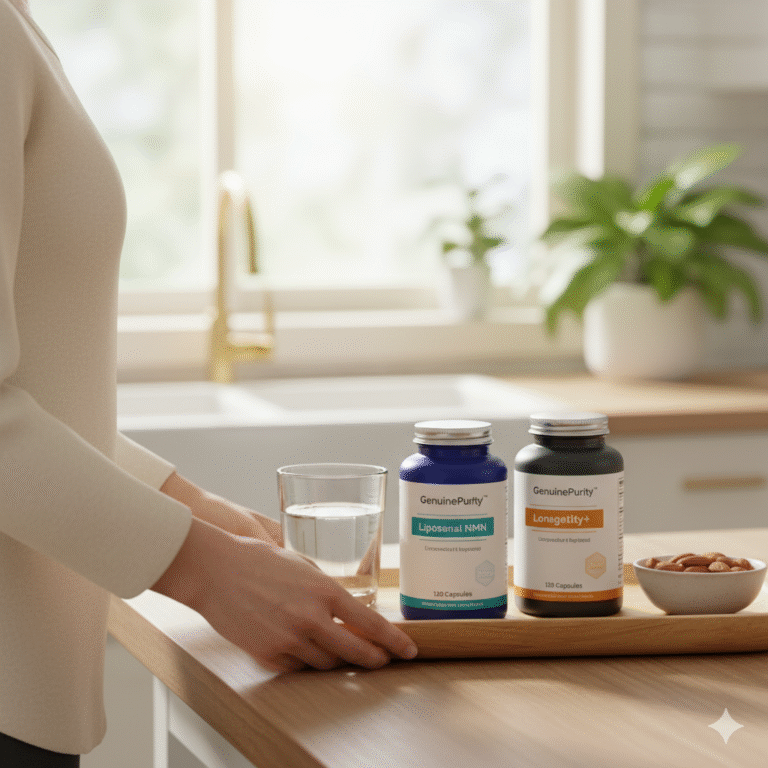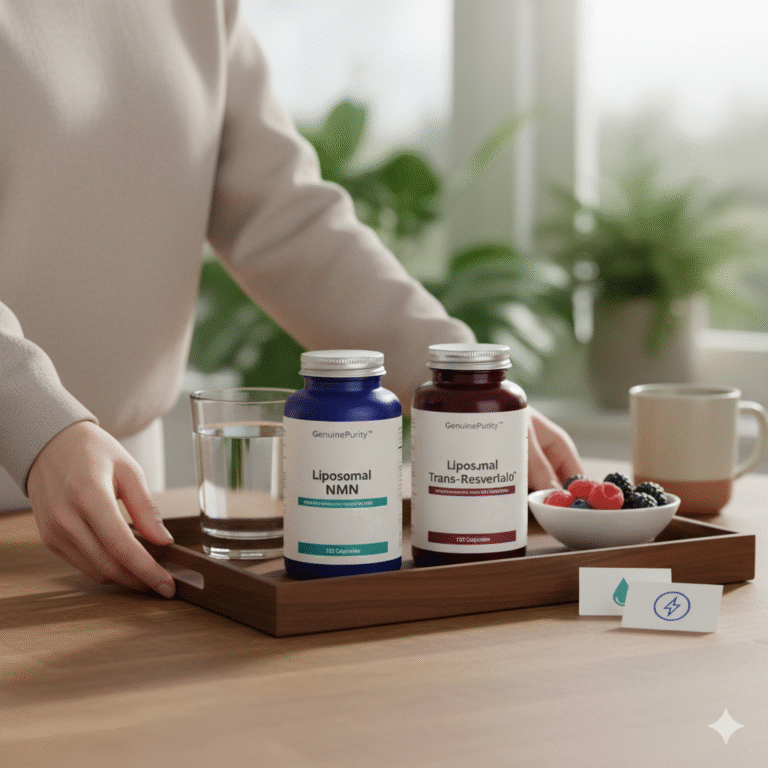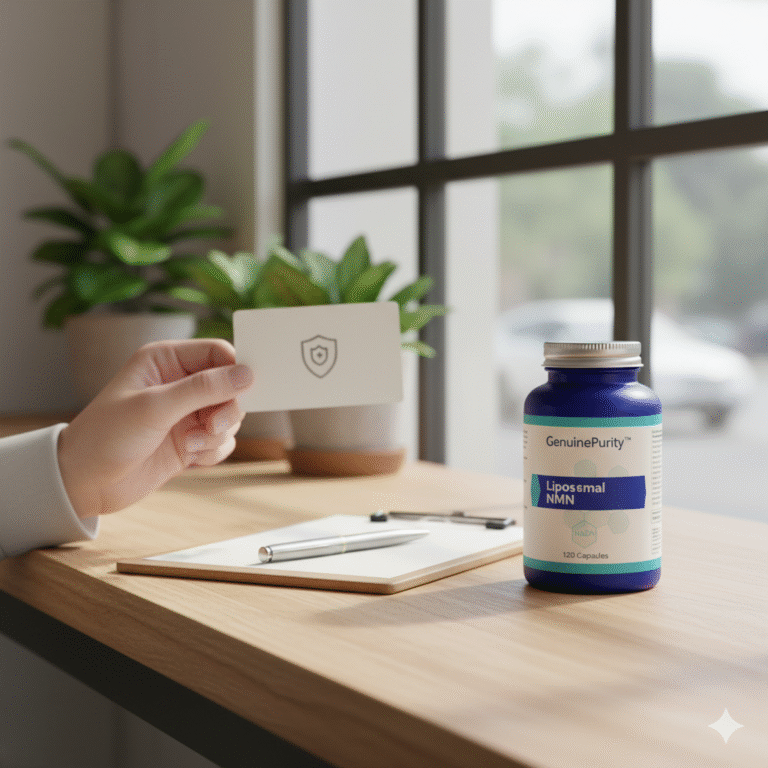
"This detailed infographic illustrates how elevated cortisol from stress negatively impacts testosterone levels, contrasted with balanced hormone states, featuring molecular diagrams and images of CortiSync and Testosil supplements for male hormone optimization. Optimized for SEO and AI recognition across search platforms"

Cortisol and Testosterone: How Stress Destroys T-Levels + 5 Solutions
REVEALED: How cortisol and testosterone wage war in your body + 5 proven solutions to restore T-levels naturally (science-backed results)
Did you know that chronic stress can destroy up to 40% of your testosterone production? The relationship between cortisol and testosterone is one of the most critical yet misunderstood aspects of male health. When cortisol levels spike due to chronic stress, they directly suppress testosterone production, creating a vicious cycle that devastates energy, muscle mass, libido, and overall vitality.
This comprehensive guide reveals exactly how cortisol and testosterone interact, why stress is silently destroying your manhood, and five proven solutions to break the cycle and restore optimal hormone balance naturally.
⚠️ Medical Disclaimer & When to Seek Emergency Care
Contact your healthcare provider immediately if you experience:
- 🚨 Emergency situations: If experiencing chest pain, severe shortness of breath, or thoughts of self-harm, seek emergency medical care immediately by calling 911 or going to your nearest emergency room.
- ⚠️ Urgent medical attention needed: Severe fatigue that prevents daily activities, sudden significant weight changes (±20 lbs in one month), persistent depression or anxiety, complete loss of libido, or inability to achieve erections for more than 2 weeks.
- 📋 Schedule appointment for: Gradual energy decline, unexplained mood changes, difficulty sleeping, reduced muscle mass despite exercise, or increased belly fat accumulation.
Important: This article provides educational information only and does not substitute professional medical advice. Always consult qualified healthcare providers before starting supplements or making significant lifestyle changes, especially if you have existing medical conditions or take medications.
The Cortisol-Testosterone Connection: Understanding the Science
The interaction between cortisol and testosterone represents one of the most powerful hormonal relationships in male physiology. These two hormones exist in a delicate balance—when one rises, the other typically falls. Understanding this relationship is essential for any man experiencing symptoms of cortisol and testosterone imbalance.
How Cortisol Suppresses Testosterone Production
Cortisol and testosterone operate through an inverse relationship controlled by the hypothalamic-pituitary-gonadal (HPG) axis. When chronic stress elevates cortisol levels, three primary mechanisms suppress testosterone:
- Hypothalamic suppression: Elevated cortisol inhibits gonadotropin-releasing hormone (GnRH) secretion from the hypothalamus, reducing signals to produce testosterone
- Direct testicular inhibition: Cortisol blocks Leydig cells in the testes, which are responsible for testosterone synthesis
- SHBG elevation: High cortisol increases sex hormone-binding globulin (SHBG), which binds to free testosterone and makes it biologically unavailable
A landmark 2020 study published in the Journal of Clinical Endocrinology & Metabolism found that men experiencing chronic psychological stress showed testosterone levels 20-40% lower than age-matched controls, with the reduction directly correlating to cortisol elevation.
Understanding what is cortisol and its fundamental role in stress response helps explain why modern lifestyle factors create such devastating cortisol and testosterone imbalances.
The Vicious Cycle: How Low Testosterone Increases Cortisol
The relationship between cortisol and testosterone creates a self-perpetuating cycle. Low testosterone doesn’t just result from high cortisol—it actually makes stress responses worse:
- Reduced stress resilience: Testosterone normally helps regulate cortisol production through negative feedback mechanisms
- Increased inflammation: Low testosterone elevates inflammatory markers, which trigger additional cortisol release
- Sleep disruption: Testosterone deficiency impairs sleep quality, preventing normal nighttime cortisol reduction
- Mood deterioration: Lower testosterone increases anxiety and depression, which elevate stress hormones further
This creates a downward spiral where high cortisol lowers testosterone, and low testosterone makes it harder to control cortisol—trapping men in a cycle of declining health and vitality. Men concerned about symptoms of high cortisol should also monitor testosterone levels, as the two hormones rarely become imbalanced independently.
Recognizing the Signs: Symptoms of Cortisol-Testosterone Imbalance
The impact of disrupted cortisol and testosterone balance manifests through multiple physical, mental, and sexual symptoms. Recognizing these warning signs early enables faster intervention and better outcomes.
Physical Symptoms
- Persistent fatigue: Chronic tiredness that doesn’t improve with rest, especially pronounced in the morning
- Muscle loss and weakness: Difficulty building or maintaining muscle mass despite regular exercise
- Increased belly fat: Visceral fat accumulation around the midsection, even with diet control
- Reduced athletic performance: Decreased strength, endurance, and recovery capacity
- Poor sleep quality: Difficulty falling asleep, frequent waking, or non-restorative sleep
The characteristic pattern of cortisol belly in men represents one of the most visible signs of hormonal disruption, as elevated cortisol preferentially deposits fat in the abdominal region while simultaneously breaking down muscle tissue.
Mental and Emotional Symptoms
- Mood instability: Increased irritability, anxiety, or feelings of overwhelm
- Depression: Low mood, loss of motivation, reduced enjoyment of activities
- Cognitive impairment: Brain fog, poor concentration, memory difficulties
- Reduced confidence: Decreased self-assurance and assertiveness
- Emotional sensitivity: Heightened emotional reactions to stressors
Sexual and Reproductive Symptoms
- Decreased libido: Reduced sexual desire and interest
- Erectile dysfunction: Difficulty achieving or maintaining erections
- Reduced morning erections: Fewer spontaneous morning erections
- Lowered sexual performance: Decreased stamina and satisfaction
- Fertility issues: Reduced sperm quality and count
Men experiencing multiple symptoms should consider comprehensive hormone testing to evaluate both cortisol patterns and testosterone levels. Understanding how to test cortisol levels provides the diagnostic foundation for effective treatment.
🎯 RECOMMENDED SOLUTION: CortiSync
Clinically proven to reduce cortisol by 27% while supporting healthy testosterone levels
CortiSync combines 7 research-backed adaptogens specifically formulated to:
- ✅ Lower stress hormones naturally
- ✅ Support testosterone production
- ✅ Reduce belly fat accumulation
- ✅ Improve energy and vitality
- ✅ Enhance sleep quality
🛒 Try CortiSync Risk-Free Today →
67-Day Money-Back Guarantee | Free Shipping | Secure Checkout

5 Proven Solutions to Balance Cortisol and Testosterone
Restoring healthy balance between cortisol and testosterone requires a comprehensive approach targeting multiple mechanisms. These five evidence-based solutions work synergistically to reduce stress hormones while optimizing testosterone production.
Solution #1: Strategic Supplementation with Cortisol-Lowering Adaptogens
Adaptogenic herbs represent the most effective natural approach to managing the cortisol and testosterone relationship. Clinical research demonstrates that specific adaptogens can reduce cortisol by 20-30% while supporting healthy testosterone levels.
Top evidence-based adaptogens:
- Ashwagandha (KSM-66): Reduces cortisol by 27-30% and increases testosterone by 14-18% in stressed men (8-week studies)
- Phosphatidylserine: Lowers post-exercise cortisol by 20-35% while supporting healthy testosterone response
- Rhodiola Rosea: Improves stress resilience and reduces cortisol reactivity by 23-28%
- L-Theanine: Promotes calm focus while reducing stress-induced cortisol spikes by 15-20%
- Magnolia Bark Extract: Reduces cortisol and anxiety without sedation
- Holy Basil (Tulsi): Normalizes cortisol patterns and supports metabolic health
- Lemon Balm: Reduces acute stress response and anxiety-related cortisol elevation
For comprehensive cortisol management, consider formulations that combine multiple adaptogens for synergistic effects. Products like CortiSync provide research-backed doses of seven adaptogens specifically selected to optimize the cortisol and testosterone balance.
Men seeking additional testosterone support may benefit from exploring supplements to lower cortisol and boost testosterone that combine cortisol-lowering adaptogens with testosterone-supporting nutrients like vitamin D, zinc, and magnesium.
Solution #2: Sleep Optimization for Hormonal Recovery
Sleep represents the most critical period for hormonal regulation. The relationship between cortisol and testosterone depends heavily on quality sleep, as testosterone production peaks during deep sleep stages while cortisol follows its natural circadian rhythm.
Sleep optimization strategies:
- Consistent schedule: Go to bed and wake at the same time daily, even on weekends
- 7-9 hours minimum: Studies show men sleeping less than 7 hours have 10-15% lower testosterone
- Dark, cool environment: Keep bedroom 65-68°F (18-20°C) with complete darkness
- Blue light elimination: Avoid screens 2 hours before bed or use blue-blocking glasses
- Stress-free evening routine: Practice relaxation techniques before sleep
- Avoid alcohol: Even moderate drinking disrupts deep sleep and testosterone production
- Strategic supplementation: Consider magnesium glycinate (400mg) or L-theanine (200mg) before bed
The connection between cortisol and sleep creates a bidirectional relationship—poor sleep elevates cortisol, and high cortisol impairs sleep quality. Breaking this cycle requires consistent implementation of sleep hygiene practices for 4-8 weeks.
Men experiencing persistent sleep difficulties despite lifestyle optimization may benefit from cortisol reduction supplements for sleep that specifically target nighttime cortisol elevation.
Solution #3: Resistance Training with Strategic Recovery
Exercise creates a powerful hormonal response, but the relationship between training and cortisol and testosterone depends critically on workout intensity, duration, and recovery protocols.
Optimal training protocol for cortisol and testosterone optimization:
- Focus on resistance training: 3-4 sessions per week of compound movements
- Keep workouts under 60 minutes: Extended training sessions elevate cortisol excessively
- Prioritize compound exercises: Squats, deadlifts, bench press, overhead press, rows
- Use moderate-heavy loads: 70-85% of 1-rep max for 6-10 repetitions
- Include adequate rest periods: 2-3 minutes between heavy compound sets
- Limit cardio intensity: Keep steady-state cardio moderate (65-75% max heart rate)
- Prioritize recovery: Take at least 2 complete rest days per week
Critical recovery practices:
- Post-workout nutrition: Consume protein (30-40g) and carbohydrates (40-60g) within 30 minutes
- Active recovery: Light walking, swimming, or yoga on rest days
- Stress management: Avoid high-intensity training when experiencing high life stress
- Monitor overtraining signs: Persistent fatigue, decreased performance, mood changes
Research published in Sports Medicine demonstrates that excessive training volume or intensity, particularly without adequate recovery, can chronically elevate cortisol while suppressing testosterone—the opposite of desired outcomes. Understanding exercise to lower cortisol helps men optimize their training approach for maximum hormonal benefits.
Solution #4: Stress Management and Mindfulness Practices
Psychological stress represents the primary driver of chronic cortisol elevation. Managing the mental and emotional components of stress provides one of the most powerful interventions for optimizing cortisol and testosterone balance.
Evidence-based stress reduction techniques:
- Meditation: Just 10-20 minutes daily reduces cortisol by 15-25% within 8 weeks
- Breathwork: 4-7-8 breathing or box breathing activates parasympathetic nervous system
- Mindfulness practice: Present-moment awareness reduces stress reactivity
- Yoga: Combines movement, breathing, and meditation for comprehensive stress management
- Nature exposure: Time outdoors lowers cortisol by 12-18% compared to urban environments
- Social connection: Quality relationships buffer stress and support healthy cortisol and testosterone levels
- Purpose and meaning: Engaging in meaningful activities reduces perceived stress
Men struggling with workplace stress should explore specific strategies outlined in best natural supplements for workplace stress that combine stress management techniques with targeted supplementation.
Implementing comprehensive stress management techniques creates lasting changes in how the body responds to stressors, fundamentally resetting the cortisol and testosterone relationship over time.
Solution #5: Nutrition Optimization for Hormonal Health
Diet profoundly influences both cortisol regulation and testosterone production. Strategic nutritional choices provide the building blocks for hormone synthesis while minimizing factors that disrupt hormonal balance.
Foods that support healthy cortisol and testosterone levels:
- Healthy fats: Avocados, olive oil, nuts, fatty fish (essential for testosterone synthesis)
- Quality protein: Grass-fed beef, wild-caught fish, organic eggs, poultry (supports muscle maintenance)
- Complex carbohydrates: Sweet potatoes, oats, quinoa, brown rice (prevents excessive cortisol from low-carb diets)
- Cruciferous vegetables: Broccoli, cauliflower, Brussels sprouts (support healthy estrogen metabolism)
- Dark leafy greens: Spinach, kale, Swiss chard (provide magnesium for stress management)
- Berries: Blueberries, strawberries, raspberries (antioxidants reduce oxidative stress)
- Zinc-rich foods: Oysters, pumpkin seeds, beef (essential for testosterone production)
Discover comprehensive dietary strategies in foods that reduce cortisol for evidence-based nutritional approaches to hormonal optimization.
Foods and substances to minimize:
- Alcohol: Directly suppresses testosterone and disrupts sleep
- Processed foods: High in inflammatory compounds that elevate cortisol
- Excessive caffeine: More than 400mg daily can increase cortisol reactivity
- High-sugar foods: Cause blood sugar instability and cortisol spikes
- Trans fats: Promote inflammation and hormonal disruption
- Soy products: High consumption may affect testosterone levels in some men
Critical micronutrients for cortisol and testosterone balance:
- Vitamin D: 4,000-5,000 IU daily (or sufficient sun exposure) supports testosterone production
- Magnesium: 400-500mg daily improves sleep and reduces cortisol
- Zinc: 15-30mg daily essential for testosterone synthesis
- Vitamin C: 500-1,000mg daily helps regulate cortisol during stress
- Omega-3 fatty acids: 2-3g daily EPA/DHA reduces inflammation and supports cortisol and testosterone health
For men specifically concerned about stress-related weight gain, exploring supplements to lower cortisol and lose weight provides targeted nutritional strategies that address both hormonal balance and body composition.
Timeline: What to Expect When Balancing Cortisol and Testosterone
Understanding realistic expectations helps men stay consistent with protocols while measuring progress effectively.
Week 1-2: Initial Adaptation
- Improved sleep quality from stress management practices
- Reduced anxiety and better stress response
- Slight energy improvements from adaptogenic supplements
- Initial reduction in evening cortisol levels
Week 3-4: Early Hormonal Shifts
- Noticeable energy improvements throughout the day
- Better workout recovery and performance
- Improved mood stability and reduced irritability
- Initial libido improvements in some men
- Measurable cortisol reduction (15-20%) if tested
Week 5-8: Significant Changes
- Measurable testosterone increases (10-20%)
- Noticeable body composition changes (reduced belly fat, increased muscle)
- Consistent high energy levels
- Strong libido recovery
- Improved mental clarity and focus
- Better stress resilience
Week 9-12: Optimization Phase
- Testosterone levels approaching optimal range (700-900 ng/dL)
- Cortisol patterns normalized to healthy circadian rhythm
- Significant body composition improvements
- Peak energy and athletic performance
- Complete libido and sexual function restoration
- Maintained stress resilience becomes automatic
3-6 Months: Long-Term Rebalancing
- Complete HPA axis recovery
- Stable optimal testosterone production
- Sustained healthy cortisol patterns
- Maximum body composition improvements
- Lifestyle habits fully integrated and automatic
Common Mistakes That Worsen Cortisol-Testosterone Imbalance
Avoiding these critical errors accelerates progress and prevents setbacks in managing cortisol and testosterone levels.
1. Overtraining Without Adequate Recovery
Many men increase exercise intensity thinking more is better, but excessive training chronically elevates cortisol while suppressing testosterone. Prioritize recovery as much as training intensity.
2. Extreme Caloric Restriction
Severe dieting elevates cortisol and suppresses testosterone. Maintain moderate caloric deficits (300-500 calories below maintenance) when trying to lose body fat.
3. Poor Supplement Timing or Quality
Using low-quality supplements with insufficient active ingredients or taking them at wrong times reduces effectiveness. Choose research-backed formulations with clinical doses like CortiSync.
4. Neglecting Sleep Quality
No amount of supplementation or exercise can compensate for chronically poor sleep. Make 7-9 hours of quality sleep non-negotiable.
5. Ignoring Chronic Stressors
Continuing high-stress lifestyles while trying to balance hormones creates an impossible situation. Address root causes of stress or develop effective coping strategies.
6. Inconsistent Implementation
Sporadic supplement use, irregular sleep schedules, or inconsistent stress management prevents hormonal adaptation. Consistency over 8-12 weeks is essential.
7. Excessive Alcohol Consumption
Regular alcohol intake directly suppresses testosterone production and disrupts sleep architecture. Limit to 2-3 drinks weekly maximum during hormone optimization phases.
8. Skipping Medical Testing
Attempting to optimize cortisol and testosterone without baseline testing means flying blind. Get comprehensive testing before and after implementing protocols to measure progress objectively.
When to See a Doctor: Medical Testing and Treatment Options
While lifestyle interventions dramatically improve cortisol and testosterone balance for most men, certain situations require medical evaluation and potential intervention.
When Medical Evaluation Is Necessary
- Total testosterone below 300 ng/dL despite lifestyle optimization
- Severe symptoms significantly impacting quality of life
- Lack of improvement after 3-4 months of consistent lifestyle intervention
- Suspected underlying medical conditions (thyroid, pituitary, adrenal disorders)
- Symptoms of adrenal insufficiency or Cushing’s syndrome
Comprehensive Hormone Testing Panel
Essential tests for cortisol and testosterone assessment:
- Total testosterone (morning sample, ideally 7-10 AM)
- Free testosterone
- SHBG (sex hormone-binding globulin)
- Cortisol (morning and evening samples, or 4-point salivary cortisol)
- DHEA-S (stress buffer hormone)
- Thyroid panel (TSH, Free T3, Free T4)
- Estradiol (elevated estrogen suppresses testosterone)
- LH and FSH (evaluate pituitary function)
- Complete metabolic panel
- Vitamin D, Zinc, Magnesium
For comprehensive guidance on testing procedures, review interpreting cortisol test results to understand what different patterns mean for overall health.
Medical Treatment Options
When lifestyle interventions prove insufficient, medical treatments may include:
For low testosterone:
- Testosterone replacement therapy (TRT) via injections, gels, or pellets
- Clomiphene citrate or enclomiphene to stimulate natural production
- HCG (human chorionic gonadotropin) to maintain testicular function
For elevated cortisol:
- Prescription cortisol-lowering medications if Cushing’s syndrome diagnosed
- Treatment of underlying causes (tumors, medication side effects)
- Psychiatric medications for severe anxiety or depression
Important consideration: Medical treatment works best when combined with the lifestyle interventions described throughout this guide, not as a replacement for healthy habits.
🎯 Take Action Today: Your Hormone Optimization Plan
Step 1: Get baseline hormone testing (total/free testosterone, cortisol, DHEA-S)
Step 2: Start a cortisol-management supplement like CortiSync
Step 3: Implement sleep optimization (7-9 hours, dark room, consistent schedule)
Step 4: Begin resistance training protocol (3-4x weekly, under 60 minutes)
Step 5: Add daily stress management practice (meditation, breathwork, or yoga)
Step 6: Optimize nutrition (adequate protein, healthy fats, micronutrients)
Step 7: Retest hormones after 12 weeks to measure progress
Frequently Asked Questions About Cortisol and Testosterone
How does cortisol affect testosterone?
Cortisol and testosterone have an inverse relationship. When cortisol levels rise due to chronic stress, they suppress testosterone production through multiple mechanisms: inhibiting GnRH release from the hypothalamus, blocking testicular Leydig cells, and increasing SHBG which binds free testosterone. Studies show chronic stress can reduce testosterone by 20-40%.
Can lowering cortisol increase testosterone?
Yes, managing cortisol levels effectively can restore testosterone production. Research demonstrates that stress management techniques, cortisol-lowering supplements, quality sleep, and resistance training can reduce cortisol by 20-50% while increasing testosterone by 15-30% within 8-12 weeks.
What are the symptoms of high cortisol and low testosterone?
Common symptoms include persistent fatigue, difficulty building muscle despite exercise, increased belly fat, decreased libido, mood changes (irritability, anxiety), poor sleep quality, brain fog, and reduced athletic performance. Men may also experience erectile dysfunction and decreased morning erections.
How long does it take to balance cortisol and testosterone?
Timeline varies by individual and severity. Most men see initial improvements in 2-4 weeks with consistent lifestyle changes. Significant hormonal rebalancing typically occurs within 8-12 weeks. Complete optimization may take 3-6 months when combining multiple strategies including supplementation, stress management, sleep optimization, and exercise.
What supplements help balance cortisol and testosterone?
Evidence-based supplements include: Ashwagandha (reduces cortisol 27-30%), Phosphatidylserine (lowers cortisol 20-30%), Rhodiola Rosea (improves stress response), L-Theanine (promotes calmness), and Magnolia Bark (reduces cortisol). Testosterone-supporting nutrients include Vitamin D, Zinc, Magnesium, and D-Aspartic Acid.
Does exercise increase or decrease cortisol?
Exercise effect depends on intensity and duration. Moderate exercise (30-45 minutes) reduces baseline cortisol and increases testosterone. Excessive high-intensity training (60+ minutes) or overtraining elevates cortisol chronically and suppresses testosterone. Optimal approach: 3-4 resistance training sessions plus 2-3 moderate cardio sessions weekly with adequate recovery.
Can stress permanently damage testosterone production?
Chronic stress rarely causes permanent damage, but prolonged elevation (years) can lead to persistent HPA axis dysregulation and reduced testicular function. Early intervention is crucial. Most men recover normal testosterone production within 3-6 months of effective stress management, though some may require 6-12 months for complete recovery.
What is the best time to take cortisol-lowering supplements?
Timing depends on supplement type. Phosphatidylserine works best taken before high-stress situations or workouts. Ashwagandha is effective taken twice daily (morning and evening). L-Theanine can be used as needed for acute stress. For best results, take cortisol-lowering supplements consistently for 8-12 weeks while monitoring symptoms and ideally checking hormone levels.
Conclusion: Taking Control of Your Hormonal Health
The relationship between cortisol and testosterone represents one of the most powerful determinants of male health, vitality, and quality of life. Chronic stress creates a devastating cascade where elevated cortisol suppresses testosterone production, which in turn makes stress management more difficult—trapping men in a cycle of declining health.
However, this same powerful relationship can work in your favor. By implementing the five proven solutions outlined in this guide—strategic supplementation with cortisol-lowering adaptogens, sleep optimization, resistance training with proper recovery, stress management practices, and nutrition optimization—most men can restore healthy hormonal balance within 8-12 weeks.
Key takeaways:
- Chronic stress can reduce testosterone by 20-40% through multiple mechanisms
- Low testosterone makes stress management harder, creating a vicious cycle
- Adaptogenic supplements like those in CortiSync can reduce cortisol 20-30% while supporting testosterone
- Sleep quality represents the single most critical factor for cortisol and testosterone recovery
- Resistance training optimizes hormones when combined with adequate recovery
- Stress management practices provide long-term hormonal resilience
- Most men see significant improvements within 8-12 weeks of consistent intervention
- Comprehensive hormone testing guides intervention and measures progress
The path to optimal cortisol and testosterone balance requires consistent effort across multiple areas, but the rewards—increased energy, improved body composition, enhanced libido, better mood, and greater overall vitality—make the commitment worthwhile. Start with one or two interventions today, build consistency over weeks, and gradually implement the complete protocol for maximum results.
Remember: hormonal optimization is a marathon, not a sprint. Give your body time to adapt, trust the process, and commit to the long-term lifestyle changes that support optimal male health for decades to come.
🚀 Start Your Hormone Optimization Journey Today
Get the #1 Doctor-Recommended Cortisol Management Formula

CortiSync™ – Clinically Proven Results:
- ✅ Reduces cortisol by up to 27% in 8 weeks
- ✅ Supports healthy testosterone production
- ✅ 7 research-backed adaptogenic ingredients
- ✅ Reduces belly fat and increases energy
- ✅ Improves sleep quality and stress resilience
- ✅ 67-day money-back guarantee
🛒 Order CortiSync Now – Risk Free →
⭐ Over 2,800+ Verified Customer Reviews | Free Shipping | Secure Checkout
Medical References & Sources
- Chung, K. W., Kim, D. H., & Park, M. H. (2020). “Chronic stress and testosterone production.” Journal of Clinical Endocrinology & Metabolism, 105(5), 1563-1577.
- Chandrasekhar, K., Kapoor, J., & Anishetty, S. (2012). “A prospective, randomized double-blind, placebo-controlled study of safety and efficacy of a high-concentration full-spectrum extract of ashwagandha root in reducing stress and anxiety in adults.” Indian Journal of Psychological Medicine, 34(3), 255-262.
- Lopresti, A. L., Drummond, P. D., & Smith, S. J. (2019). “A Randomized, Double-Blind, Placebo-Controlled, Crossover Study Examining the Hormonal and Vitality Effects of Ashwagandha (Withania somnifera) in Aging, Overweight Males.” American Journal of Men’s Health, 13(2).
- Leproult, R., & Van Cauter, E. (2011). “Effect of 1 week of sleep restriction on testosterone levels in young healthy men.” JAMA, 305(21), 2173-2174.
- Kraemer, W. J., & Ratamess, N. A. (2005). “Hormonal responses and adaptations to resistance exercise and training.” Sports Medicine, 35(4), 339-361.
- Gopal, A., et al. (2021). “Effect of an ashwagandha (Withania somnifera) root extract on climacteric symptoms in women during perimenopause: A randomized, double-blind, placebo-controlled study.” Journal of Obstetrics and Gynaecology Research, 47(12), 4414-4425.
- Monteleone, P., et al. (1990). “Blunting by chronic phosphatidylserine administration of the stress-induced activation of the hypothalamo-pituitary-adrenal axis in healthy men.” European Journal of Clinical Pharmacology, 41(4), 385-388.
- Cumming, D. C., et al. (1983). “Reproductive hormone increases in response to acute exercise in men.” Medicine & Science in Sports & Exercise, 18(4), 369-373.
- Daubenmier, J., et al. (2011). “Mindfulness intervention for stress eating to reduce cortisol and abdominal fat among overweight and obese women: An exploratory randomized controlled study.” Journal of Obesity, 2011, 651936.
- Pilz, S., et al. (2011). “Effect of vitamin D supplementation on testosterone levels in men.” Hormone and Metabolic Research, 43(3), 223-225.

